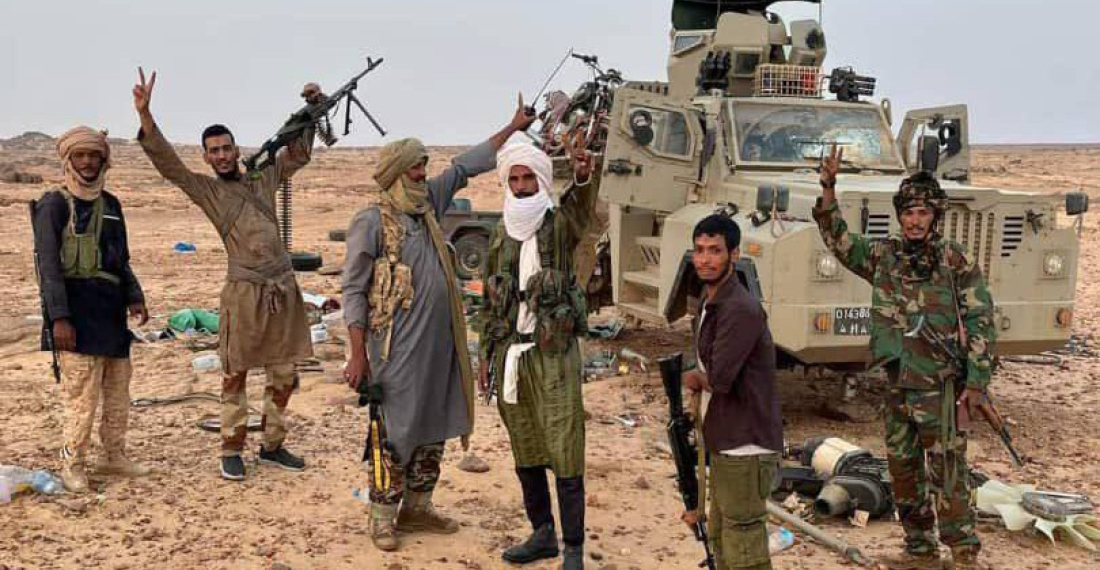Ukraine claims it helped rebels in Mali inflict heavy losses on dozens of government soldiers and Russian mercenaries from the private Russian group Wagner. Information from Ukrainian military intelligence allegedly allowed Malian rebels to ambush Wagner fighters.
In a rare admission, Wagner confirmed on Monday (29 July) that the mercenary army had suffered heavy losses in Mali. The Russian mercenaries are fighting alongside the government army.
In a message posted on Telegram, the Russian mercenary group did not specify how many of its troops had died, but confirmed it had suffered "losses". These included a commander, Sergei Shevchenko, who was killed in action. The mercenaries initially "destroyed most of the Islamists and forced the rest to flee", the statement said. "However, [a] subsequent sandstorm allowed the radicals to regroup and increase their numbers to 1,000," it added.
On social media, amateur videos showed the lifeless bodies of several white men and Malian soldiers lying on the ground next to destroyed vehicles. Dozens of soldiers were killed or captured by separatist Tuareg fighters in the north of the African country last weekend. The attack reportedly took place near the village of Tinzaouatène, close to the border with Algeria. Malian rebels are said to have taken advantage of a sandstorm to ambush Wagner's troops.






